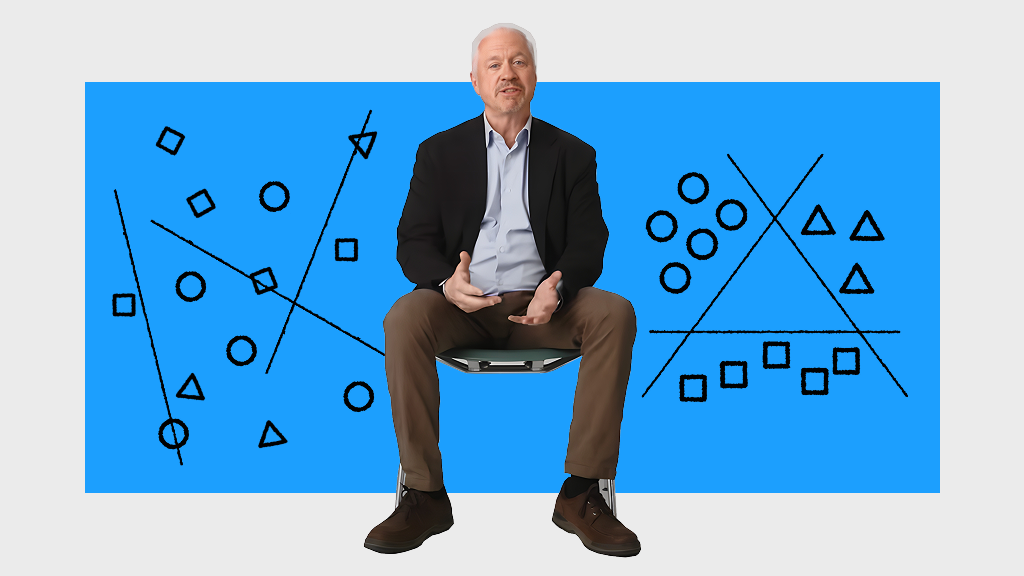Just How Much of Yourself Do You Really Want to Outsource?

Political and economic changes have a way of getting into people’s heads. Once-new tools come to feel as natural as the hands that pick them up; once-new rules, ingrained in habit, come to seem like natural laws. That’s how products and policies turn into culture. It’s a process we usually see in hindsight (remember when we thought jazz clubs had be to filled with cigarette smoke?). But now and then you see this transformation happening in real time.
Case in point: Not long ago, surveillance—gathering data on people’s actions, analyzing it to understand them better, using that analysis to change their behavior—was a tool of cops and bosses. But lately people have come forward to say they think this technology can and should be used for even the most intimate aspects of private life. Not everyone agrees with them. But just having such a debate about surveillance-and-control tech is a sign that attitudes toward personal autonomy are shifting.
In this post at nymag.com, for instance, Ann Friedman wondered how data-crunching, reminder-pinging apps might be used to keep the vast damp towel of long-term marriage from getting too moldy. For example, she says, since domestic drudgery is a source of much unpleasantness in couples, how about an app that keeps track of chores? “Perhaps an app could provide a nudge, tracking whose turn it is to tackle a particular unpleasant duty.” Or how about an app that promotes kind little gestures: candy, flowers or a bit of unexpected vacuuming. Or one that promotes even kinder gestures (and postures), Friedman writes: ” ‘Maybe an app that held you to a sex schedule,’ another married friend suggested. ‘Like, ‘Tuesday night: sex, wine, dinner.’ It just gets too easy to put no effort into a relationship when you’re comfortable.’ “
Friedman was having fun, but of course apps like this really do exist. One, for instance, is called romantimatic. Greg Knauss wrote it as a tool to help people “send a simple ‘I love you’ to the most important person in our lives.” You set a schedule, and the app makes sure you send a text or some other message of love at the times you appointed. That’s not very different from a note scribbled on a calendar, of course. But the calendar won’t spare you the effort of thinking of something to say. Nor will it send the text for you. Romantimatic will. Though one of its pre-set suggestions is “my phone told me I should tell you that I love you,” you could easily set up the app so that your romantic partner thinks s/he’s hearing from you, not a device to which you’ve offloaded all the effort. In fact, as Evan Selinger points out, romantimatic actually reminds people that they might want to hide its existence from the person whose heart it’s warming.
Selinger’s astute post was far from the only one that questioned the value of appifying “I love you.” In this post on his blog, Knauss shook his head in wonder at the first wave of criticism, and made explicit what Friedman only implied. It’s a tool, he said. Why not use it? “If you’re not good at something and want to get better at it, a tool can help. Tools make things faster and easier and more reliable.”
But not all tools are alike. Calendars are reminder tools. And find-a-partner apps like Tinder or Grindr are search tools. There’s something different about intimacy apps—like this one (text your gf so you can spend more time with your real friends!) and this one (use your phone’s motion sensor to measure how good your sex is, because nothing says love like sharing those stats with our bedmate). These are management tools. Romantimatic doesn’t help you with a decision to text “I love you” at 3:15. It makes the decision (and, if you’re using it to the hilt, it also decides that the text will contain those precise words).
You might reply that you’re still the real decision-maker, because you set up the app. But that’s like saying you decided that healthcare.gov should roll out as badly as it did, because you voted for Barack Obama in 2008, or (to be bipartisan about it) that you personally decided that Iraq should be mired in violence because you voted for George Bush in 2004. Delegation is a big decision that eliminates the need to make many small ones; it is a decision not to decide. And when you don’t decide, someone (or something) else has to. That’s work that you could have done, being done by someone else. This is why being president of anything is a job.
When you outsource decisions that require self-monitoring and self-management, then, you’re giving up some autonomy. First, you are, literally, making fewer decisions about what to do. Second, you are trusting yourself less, setting aside your own understanding of your condition in favor of supposedly objective measurements. (“Gee, that felt like great sex, but according to my phone, it was just average.”) Third, you’re offloading the real work of decision-making—the psychic act of “self-binding,” forcing yourself to do what you aren’t at the moment inclined to do. Something else is doing that job.
Are you saying “so what?” right about now? Thinking, as Knauss argues, that a tool is a tool, and if someone finds that tool useful, there is no harm? If so, I’ll concede there are some aspects of life in which you’re probably right. For certain matters—avoiding fees on your bank account, making sure you do 15 minutes on the treadmill instead of stopping at 12—it may make perfect sense to offload the monitoring and managing effort onto a gadget. Why not use that time and energy for something more important?
However, there are other aspects of life where reducing one’s autonomy might not be such a great idea. Aspects where no one would have considered it a good idea, even 10 years ago. Those are the aspects that are real only if you do the work yourself.
Reacting to romantimatic, Selinger quickly developed a systematic critique of this kind of app, based on this point. There are forms of labor that shouldn’t be saved, he argued; the labor of love is one. When you offload the work, you have offloaded everything: “Intimacy and trust are cultivated through skill and commitment—attunement to someone else’s needs and desires and a capacity to meet many of them through independent action.”
For this reason, I think appified intimacy might be the area that makes people notice the spread of the monitor-and-manage approach and the consequent reduction in their own autonomy. We accept the encroachment of monitor-analyze-influence in the workplace (the blocking of certain websites, the keystroke analyzers, the gamification of weight-loss and quit-smoking efforts that help bring down insurance costs), because, well, the boss insists. And we accept apps that help us manage ourselves because when we use those, we’re still in control. When you’re using an app to force yourself to get to the gym, you’re the boss. (Though you could object, as D.H. Lawrence did: “every man as long as he remains alive is in himself a multitude of conflicting men. Which of these do you choose to perfect, at the expense of every other?”)
But when we aren’t compelled by the terms of employment to accept being managed by this same combination of data collection and nudging, it’s easier to see the drawbacks of tools that outsource decision-making itself. Love was once a part of life reserved for individual decision-making—where only you, no other person or automated process, can make a choice. To appify love is to shrink the space of your individual decision-making. Indeed, to have a debate about whether it can be appified means that scope is already starting to shrink.
Illustration: “Confused Robot,” by Jennifer M. Bean
Follow me on Twitter: @davidberreby





